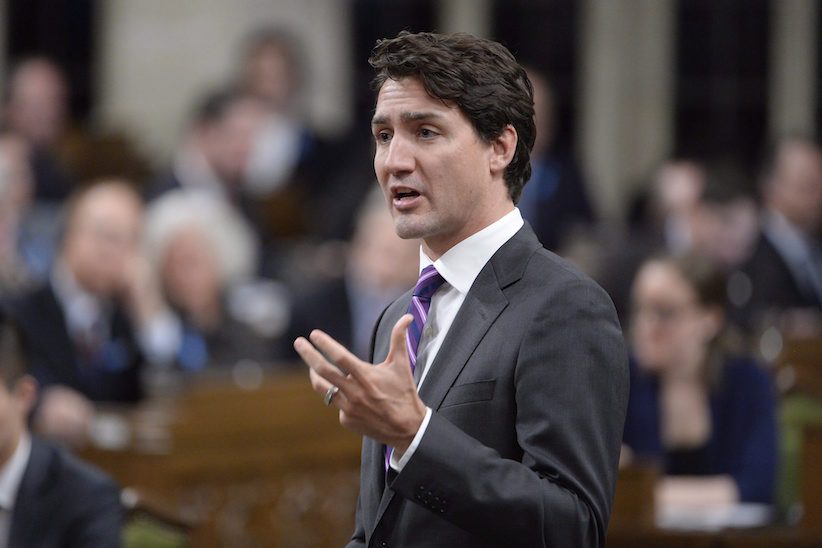Hey, you! Yes, you. Are you tired of opinion-leading journalists crying poor to the federal government? Sick of endless layoffs and the slow bleeding-to-death of august publications like Maclean's and Chatelaine? Anxiously stockpiling Margaret Wente and Rex Murphy columns?
Well, waste no more time asking yourself, "Whither Canadian Journalism?" Actually, don't waste your time using the word "Whither?", ever. Seriously, though: Fear not, for I, your humble correspondent, have devised an absolutely foolproof plan for saving Canadian Media from itself.
How do I know it's foolproof, you ask? Simple: All I propose to do is to take emerging trends within Capital C-Canadian Capital J-Journalism and extend them to their most logical conclusions. It's the greatest kind of Canadian problem solving: Blindly following along, shunning innovation, declaring victory when nothing of the sort has happened. And not only that, but the whole plan can be contained in a number of steps people can count to. Well, most people, anyway. Without further ado, here's step 1:
Step 1: Get Back To Basics: Unvarnished Partisanship
Newspapers started out as blatantly partisan rags for one side or the other, and in the intervening centuries we've gotten better and better at pretending this isn't still the case, and that something resembling a code of ethics is upheld. Actually, that's not quite true: The media has gotten better at pretending, and the rest of us decided we weren't going to mention it because doing so would be uncalled-for dunking on people who can't defend themselves.
Whether it's the Toronto Star's resolute declarations of ¡No pasarán! with respect to the dreaded fake news or the tall foreheads at Canadaland fundraising off the backs of the Sun Media chain going all in for Ford Nation, we've got a lot of journos pretending they are above it all. Noble, but with the way things are going we're all going to end up on the payroll of one government or another, so why not get it over with? Journalists of conscience need to recognize that consensus media elected Ford, and they must therefore declare themselves for the glorious anti-Ford resistance now, before he has a chance to do anything, and declare for whichever party has the best chance of invalidating Dougie's Premiership.
Step 2: Fight The Alt-Right, All Day And All Night
Now that we've dispensed with the illusion of fairness, we can get on with the real business of journalism, which involves "fact-checking" the alt-right. The example of Daniel Dale, who lays passive-aggressive Canadian burns on the Un-President like it's his job….oh wait, that IS Dale's job now, apparently……is instructive in this regard. What if all Canadian media coverage pushed the anti-Trump agenda in some way? OK OK, what if it did that, but more so? Imagine if, instead of boring articles about filling in potholes, we got articles about how filling in that pothole was a defiant act against capitalism. Private industry didn't fill that pothole, did it now?
Regular old sports journalism? No, let's have articles about how the Blue Jays should refuse to play in any state that voted for Trump (and let's be honest, the Jays can hardly be said to be "playing" when they do take the field, am I right guys? Guys????) or how the Leafs should switch out the blue on their uniforms for a more centrist red or orange…. for home games only, of course. Forget your dad's crossword puzzle, what's a seven letter word for "Progressive Battle Cry"? The answer is, of course, "#RESIST". What do you mean, you can't use hashtags in a crossword puzzle? Three other words branch off from that one and they all use hashtags too!
Step 3: Self-Aggrandizing Mansplaining In The Pages Of The New Yorker
I ask you: Where would we be without Adam Gopnik's regular love letters to Canada in the pages of the New Yorker? As much, if not more effort should be put into building up Canada in the eyes of upper-crust NYC intellectuals than actually maintaining the institution of Canadian journalism. Otherwise, Americans might start looking more closely at our country and finding flaws flaws that we barely covered in our own media!
Written by Josh Lieblein








